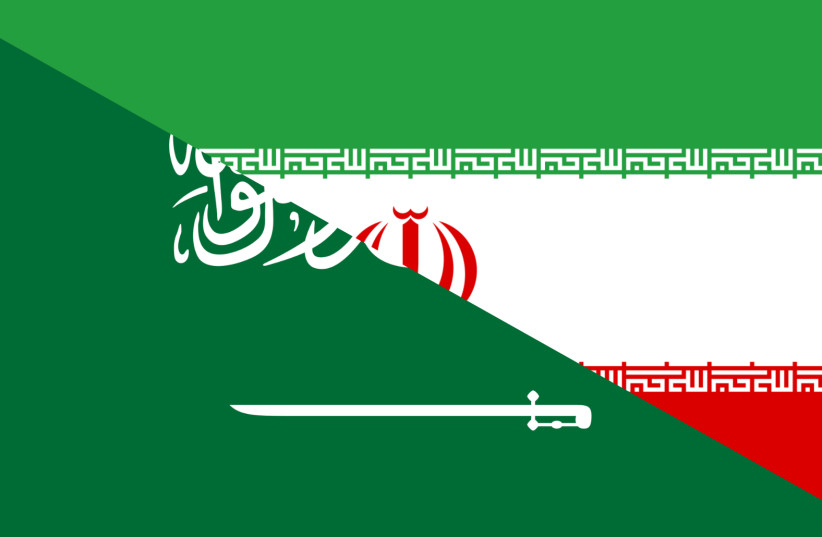The Saudi-Iranian agreement has sparked debate among analysts and experts, with some claiming that it undermines the Abraham Accords signed by Israel with several Gulf and Arab states, and that Israel is the biggest loser in this deal. They allege that Saudi Arabia will not pursue normalization efforts with Israel.
However, a closer look at the situation suggests that these assumptions may not be entirely accurate. Signing peace agreements with Israel is not necessarily aimed at building a defensive wall or confrontation axis with Iran.
In fact, there are official policies that refute this idea, such as the United Arab Emirates’ decision to resume diplomatic relations with Iran after signing a peace agreement with Israel. This is part of the UAE’s foreign policy to open up to all countries and ease tensions.
Despite this, economic and strategic cooperation between the UAE and Israel continued and was not affected by the UAE’s opening to Iran. Furthermore, it was not a unilateral move, as the UAE’s Gulf allies were aware of its movements toward Iran. In addition, there were rounds of talks between Saudi Arabia and Iran mediated by Iraq, as media reports at the time confirmed.
The issue has nothing to do with Iran
The issue of normalizing relations between Saudi Arabia and Israel has nothing to do with Iran. Riyadh has its own considerations, interests and calculations, and we do not believe that “sensitivity” to a possible Iranian counter-reaction is a significant factor in these calculations, if it exists at all.

Israel has a strategic vision that involves mobilizing regional forces to confront the Iranian nuclear threat. While both parties recognize the danger, evidence shows that signing peace agreements with Israel is not directly related to this vision. Rather, it is driven by a desire for regional cooperation, establishing a culture of coexistence, and other economic, scientific and technological reasons that have nothing to do with regional mobilization.
As a result, the Abraham Accords are progressing alongside the resumption of relations between Tehran and Gulf capitals, with limited impact on each other. The Gulf Cooperation Council (GCC) countries understand the need to cool down regional crises and achieve stability through self-reliance, given the declining role of the US and the desire to reduce foreign interventions in the region.
It can be said that there is no Saudi political agenda related to normalizing relations with Israel in the resumption of relations between Riyadh and Tehran. There is an official Saudi position on this matter, and actual breakthroughs have been made, such as allowing Israeli aircraft to fly over Saudi airspace. These steps and decisions have nothing to do with Iran, especially since the Saudi-Iranian dialogue began two years ago and culminated in an agreement signed in Beijing and mediated by China.
China has become a significant player in the regional security equation and is unlikely to undermine the Abraham Accords. This is because they align with China’s strategic interests, and the country seeks to ensure stability and security in the Arab Gulf region, from which it imports roughly half of its energy resources.
AS FOR whether Israel can be considered a losing party in the resumption of diplomatic relations between Saudi Arabia and Iran, it can be unequivocally said that those advocating for regional mobilization against Iran may view Israel as a loser, regardless of the actual size or strategic impact of the loss.
However, the idea of Israel losing out is primarily theoretical, since the concept of regional military mobilization was never realistically feasible. Many initially dismissed the possibility of Gulf states joining an explicit military alliance against Iran.
From my perspective, Saudi Arabia is undergoing a political shift, with highly ambitious strategic goals that make it challenging to predict how they will approach issues such as the normalization of relations with Israel based on outdated constants. As we’ve noted, there’s a declared ambiguity in the Saudi stance toward Israel. Additionally, there’s a regional movement that makes it hard for Saudi diplomacy to remain isolated.
Moreover, there are rapid and wide movements on the regional and international chessboard that aim to re-engineer the foundations of the post-Ukraine world order. With its regional and international clout, Saudi Arabia may find it challenging to think beyond these changing strategic contexts.
Therefore, it remains to be seen if the Saudi position on the Abraham Accords will remain subject to the determinants that Riyadh announced on previous occasions, or if there will be a significant breakthrough resulting in Saudi Arabia obtaining enormous strategic interests in exchange for modifying its position on some unresolved files.
In brief, the resumption of relations between Riyadh and Tehran doesn’t necessarily equate to Saudi Arabia abandoning the Abraham Accords, as the kingdom’s stance is primarily based on issues unrelated to Iran. It also doesn’t imply any undermining of the current accords.
Additionally, the evidence shows that the region is going through rapid transformations, making it challenging to rule out any possibilities. However, everything still hinges on Israel’s conduct and decisions, which must factor in these significant changes and act in a manner that advances its interests with Arab and Gulf states, particularly concerning de-escalating the situation with the Palestinians.
The writer is a UAE political analyst and former Federal National Council candidate.
